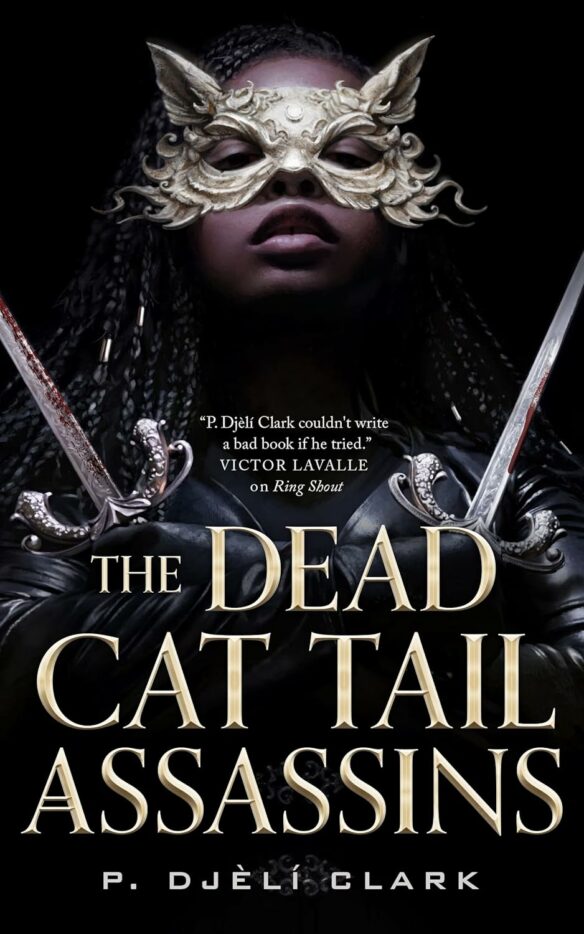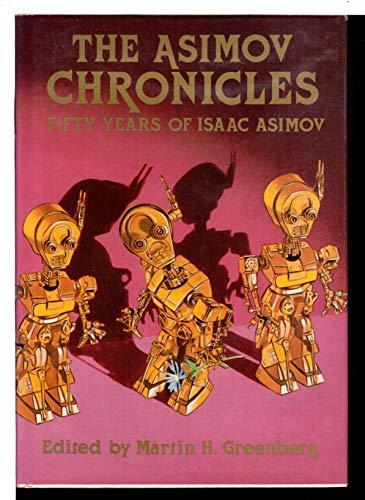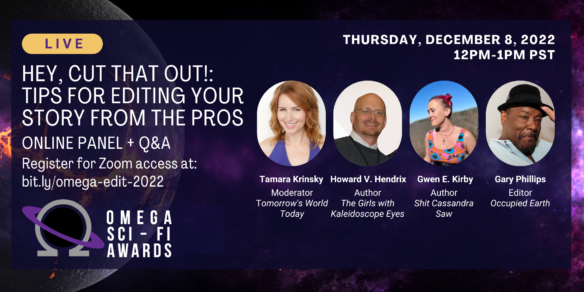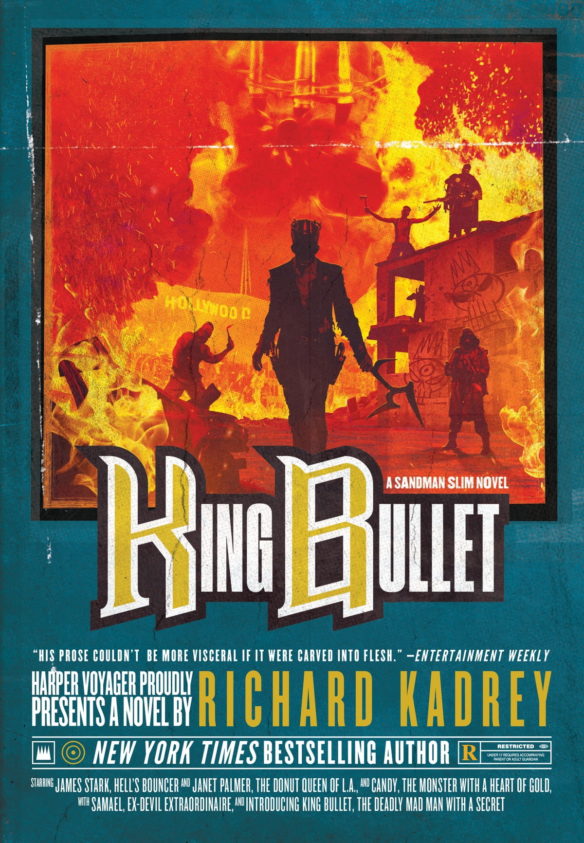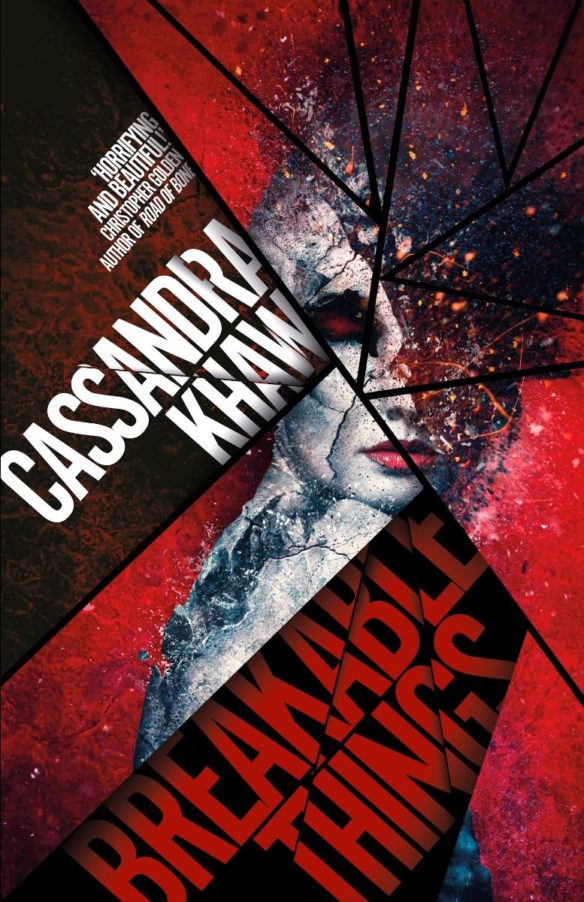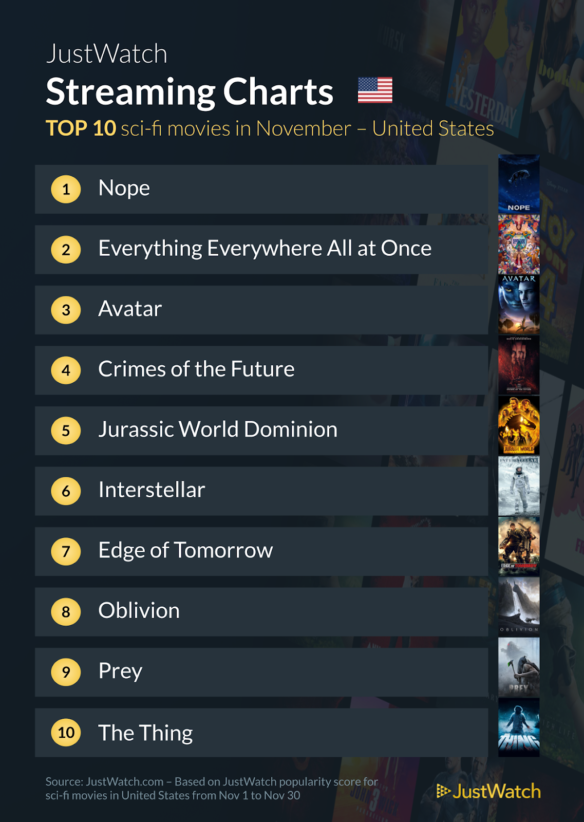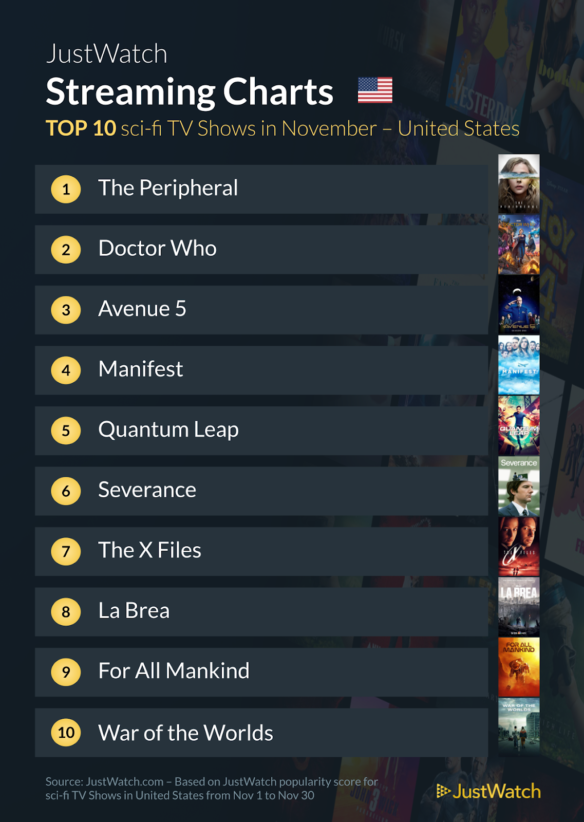(1) MCINTYRE’S LAST NOVEL FINDS HOME. Clarion West today told newsletter subscribers that after spending years seeking a publisher for Vonda N. McIntyre’s final novel, The Curve of the World, Aqueduct Press has accepted the book for publication.
Vonda’s warm, feminist voice brings to life an alternate history of the ancient world. Minoan ship captain Iakinthu journeys from the Mediterranean Sea to the northwest coast of North America, traversing the globe to return her adoptive son to his birth home. Along the way they brave pirates and treacherous royals, and discover that trust can be built between unlikely allies.
Many thanks to L. Timmel Duchamp at Aqueduct and Jennie Goloboy at the Donald Maass Literary Agency (World English) for delivering Vonda’s final work to readers.
(2) CLARKESWORLD 2024 READER’S POLL WINNERS. Neil Clarke announced the Clarkesworld 2024 Reader’s Poll Winners today.
(3) ROBERT E. HOWARD AWARDS NEWS. The 2025 Robert E. Howard Awards Shortlist has been released. See the finalists in File 770’s post.
(4) URSULA K. LE GUIN PRIZE FOR FICTION. Nominations are being taken for the 2025 Ursula K. Le Guin Prize for Fiction starting today. The deadline to submit is March 31. Information at the link.

(5) EATING THE FANTASTIC. Scott Edelman invites listeners to Have a Nashville hot chicken sandwich with Robert Greenberger in Episode 248 of the Eating the Fantastic podcast.

My guest this time around is Robert Greenberger, a writer and editor of more than 100 books and anthologies, many within the DC, Marvel, and Star Trek franchises. He started his professional career an editor for Comics Scene and Starlog Press, and in 1984, joined DC Comics as an assistant editor to Len Wein and Marv Wolfman. He was promoted to editor the following year, and assigned the titles Star Trek, Suicide Squad, and Doom Patrol. The adaptations of several Star Trek films he edited led to him working on the franchise’s novel series, such as the seven-book crossover miniseries Gateways, developed with novel editor John J. Ordover. He continued at DC until 2000, by which time he’d risen to the position of Manager-Editorial Operations. Over the years, he worked on such titles as The Warlord, Lois Lane, Action Comics Weekly, Time Masters, Secret Origins, The Hacker Files, and more.
In 2001, he joined Marvel Comics as Director-Publishing Operations under Joe Quesada, but soon rejoined DC Comics as a Senior Editor for Collected Editions, where he remained until 2006. Since that time, he’s freelanced as a writer and editor, working for such companies as Weekly World News (where he was Managing Editor in 2006 and 2007), Platinum Studios, Syfy, Famous Monsters of Filmland, and ComicMix.com. He’s also a co-founder of Crazy 8 Press.
We discussed our teen experiences at the first Star Trek convention in 1972, how TV taught him about the existence of Marvel Comics, the way George Reeves as Clark Kent made him want to be a journalist, the lecture Wonder Woman editor Robert Kanigher gave him after he dared give feedback, why so many DC Comics staffers walked around without their shoes on Fridays, how he convinced Cable News to launch Comic Scene magazine, the convoluted way Denny O’Neil was responsible for him becoming Len Wein and Marv Wolfman’s assistant, how his editing of Star Trek comics led to his writing Star Trek fiction, the differences he saw in corporate culture while working at both Marvel and DC, what Clark Kent would have thought of his gig at the Weekly World News, and much more.
(6) SHREK V. ScreenRant introduces “Shrek 5 Trailer”.
…The teaser introduces older versions of Shrek and Fiona alongside their grown-up daughter and Donkey. Pinocchio also returns to the screen for a brief moment. In addition, Universal announced that Zendaya is joining the voice cast of Shrek 5 as Shrek and Fiona’s ogre daughter. The end of the clip also confirmed that the fifth movie will be coming out Christmas 2026…
(7) THAT’S WHAT I THOUGHT I HEARD. “Bruce Vilanch’s book looks back on some his worst writing for award shows” on NPR’s “Weekend Edition”. He helped the Star Wars Holiday Special gain the reputation it has today...
NPR’s Scott Simon talks with comedian Bruce Vilanch about his new book, “It Seemed Like a Bad Idea at the Time,” which details some of the worst television of the twentieth century and his role in it.
… SIMON: I can’t delay much longer – 1978 “Star Wars Holiday Special.”
VILANCH: I know. It’s irresistible.
(SOUNDBITE OF TV SHOW, “STAR WARS HOLIDAY SPECIAL”)
HARRISON FORD: (As Han Solo) That’s it. I’m turning back.
PETER MAYHEW: (As Chewbacca, vocalizing).
FORD: (As Han Solo) I know your family’s waiting.
MAYHEW: (As Chewbacca, vocalizing).
FORD: (As Han Solo) I know it’s an important day.
MAYHEW: (As Chewbacca, vocalizing).
SIMON: That’s Harrison Ford as Han Solo trying to rush the starship.
VILANCH: Yeah. Well, that was our problem. The wookiees were the stars, and you heard what the wookiee had to say. We were writing for characters that spoke no known language, couldn’t sing, couldn’t dance, couldn’t move in their costumes….
(8) DAVID JOHANSEN (1950-2025). The frontman of punk band the New York Dolls, David Johansen, died February 28 of cancer reports Deadline. He also had many acting credits. He was the Ghost of Christmas Past in Scrooged (1988), appeared in the Tales from the Darkside film (1990) and Illuminati Detectives (2020).
(9) MEMORY LANE.
[Item by Cat Eldridge.]
March 1, 1989 — Hard Times on Planet Earth series
Thirty-six years ago this evening on CBS, the Hard Times on Planet Earth series first aired. It was one of those ubiquitous midseason replacements that networks are so fond of doing when a series they started the season with was a failure.
Michael Piller was involved for three episodes.
The cast was Elite Military Officer (yes that’s how he’s named in the credits) played by Martin Kove, and Control, voiced by Danny Martin, and depicted as a small floating robot. The very brief summation is Jesse, an alien exiled to Earth now in a human, hardly surprising, who finds himself in Los Angeles. His only companion is a floating, orb-shaped robotic companion named Control. Doomed to stay on Earth until Jesse can learn compassion, and no that’s not explained, Control helps him lead as normal a life as possible, but not being human ways Jesse often finds himself in trouble. Comically of course.
It was created by the brother Jim and John Thomas who previous has written the screenplays for Predator and Predator 2, and they wrote for the Wild Wild West.
Reception for this was hostile to say the least with People Magazine critic saying of this particular Disney product, “About 20,000 RPM—that’s how fast I reckon Walt Disney must be spinning in his grave with shows like this on the air.” And the Sun Sentinel reviewer really hated it: “The youngest Nielsen demographic starts at 2-year-olds. Even the slowest of developers would be too sophisticated at 24 months for Hard Time on Planet Earth. There hasn’t been a more insultingly stupid, utterly worthless series since Misfits of Science.”
Normally I’d give you its rating on Rotten Tomatoes but apparently it has gotten even a dedicated fan base as CBS has kept it locked away deep in their digital vaults since its initial airing.
Those episodes are pirated on YouTube so any links to them here will be deleted. You’ve been warned.

(10) COMICS SECTION.
- B.C. takes a closer look.
- Saturday Morning Breakfast Cereal explains some fantasies.
(11) STREAMING PERFORMANCE OF OSCAR FINALISTS. The awards race is heating up, and JustWatch has pulled fresh streaming insights on this year’s Oscar-nominated films. As always, they’re tracking how each nominee is performing across various streaming providers, like Netflix, Disney+, MUBI, and so on—and there are some surprising trends this year.
From sci-fi epics like Dune: Part Two and Alien: Romulus to animated hits such as Inside Out 2 and The Wild Robot, this year’s top Oscar-nominated films have captivated audiences across genres. Gladiator II, one of the most anticipated sequels of the decade, also secured a spot in the top ten, reflecting the strong demand for legacy franchises. Meanwhile, critically acclaimed dramas The Substance and A Real Pain proved their staying power with streaming audiences.

(12) DINO PARTS IS PARTS. “Lego’s Next Jurassic Park Set is the Dino Skeleton You’ve Always Wanted” – Gizmodo’s got that right!
There have been many T.rex builds over the course of Lego’s Jurassic sets, big and small, but its latest is certainly the grandest yet–and the most stylish.
This morning Lego revealed that its very next Jurassic set will take fans not to the next movie, Rebirth, but all the way back to the original for a 3,000-plus-piece replica of the T.rex skeleton that appears in the movie. Clocking in at over three feet in length once built the set will take the prehistoric crown as Lego’s biggest-ever Jurassic set….

(13) ONE STONE, MANY BIRDS, AND THE RISE OF MAMMALS. [Item by SF Concatenation’s Jonathan Cowie.] Some 65 million years ago around tea time a chunky asteroid the size of New York City impacted the Earth and caused a mass extinction event that wiped out the dinosaurs. But what if the dinosaurs hadn’t been wiped out? This notion has been explored in SF a number of times but perhaps most notably by Harry Harrison whose pleasure we had in the British Isles for many years. He looked at this concept in a trilogy that began with West of Eden (1984) (and I have a vague – hopefully not inaccurate – recollection that the reproductive biologist, Jack Cohen, had a hand in some of the novel’s background science?).
Anyway, this week PBS Eons poses a related question: why exactly was it that mammals replaced the dinosaurs, why couldn’t small species of dinosaur survive and prevent mammals taking over? Indeed, given that reptiles have less food requirements than mammals and their young need less parental care, one might justifiably think that small reptilian dinosaurs would have the edge over mammals.
Now, following the asteroid strike a number of things happened in addition to the rise of mammals. One was that there was a fungal spike: it is clear in the geological record. While both the fungal spike and the rise of mammals are both associated with the asteroid-induced extinction event, they are not thought to be associated with each other… That is until recently. One idea has it that the fungal spike actively affected small dinosaurs in a negative way while impacting small mammals positively…
An asteroid impact triggered the K-Pg mass extinction, wiping out the non-avian dinosaurs, ending the Age of Reptiles, and ushering in the Age of Mammals. But why was it the mammals who triumphed?
Now, it has to be said that I have never really forgiven the dinosaurs for what they did to Raquel Welch and so have a stake in their demise. Meanwhile, Michelle Barboza-Ramirez explains the new idea in the 11-minute video below… “Why Wasn’t There A Second Age of Reptiles?”
[Thanks to Mike Kennedy, Andrew Porter, John King Tarpinian, Scott Edelman, John A Arkansawyer, Chris Barkley, Cat Eldridge, SF Concatenation’s Jonathan Cowie, Steven French, Kathy Sullivan, and Teddy Harvia for some of these stories. Title credit belongs to File 770 contributing editor of the day Daniel Dern.]


